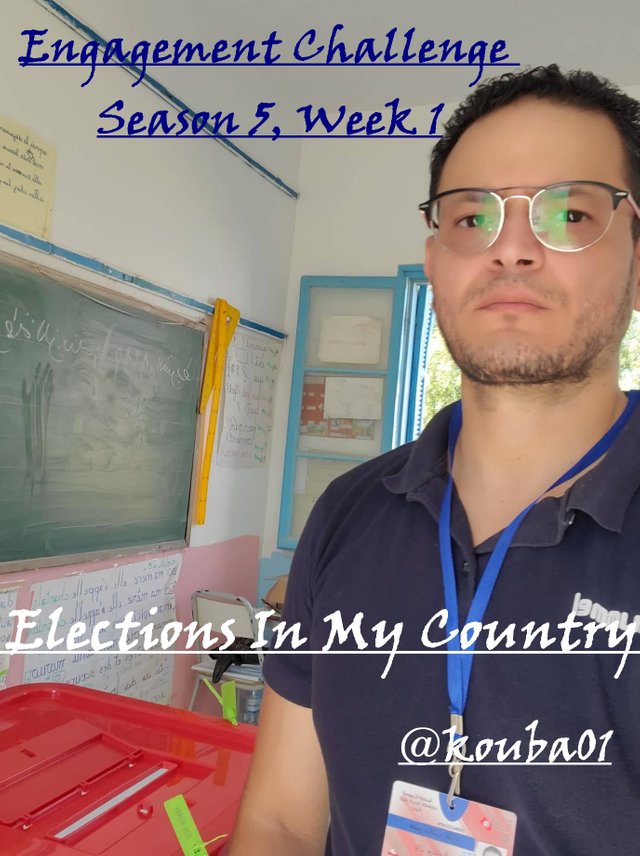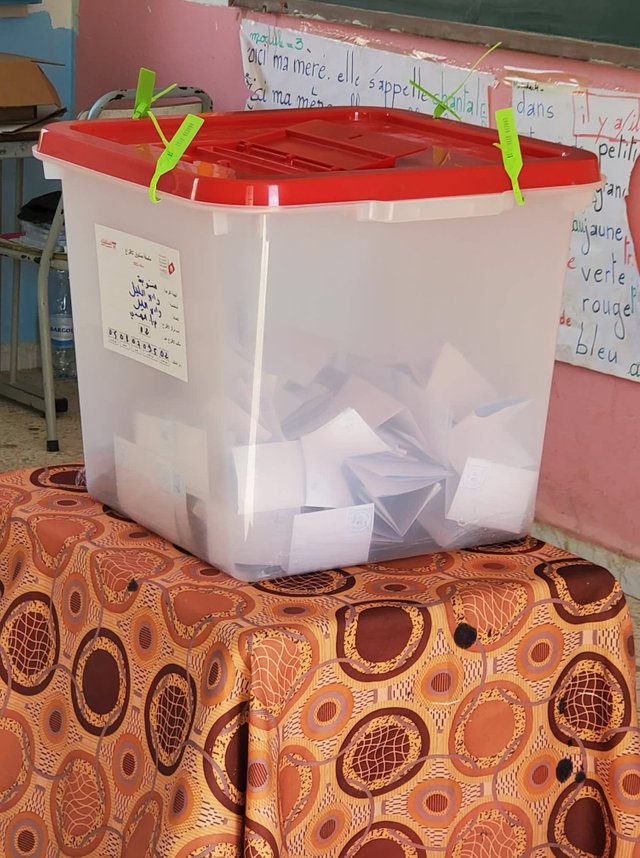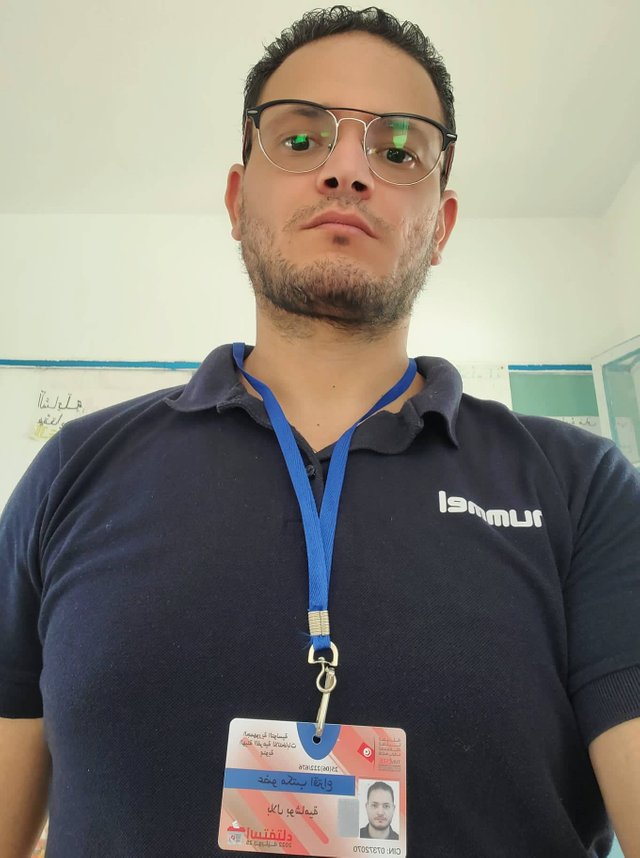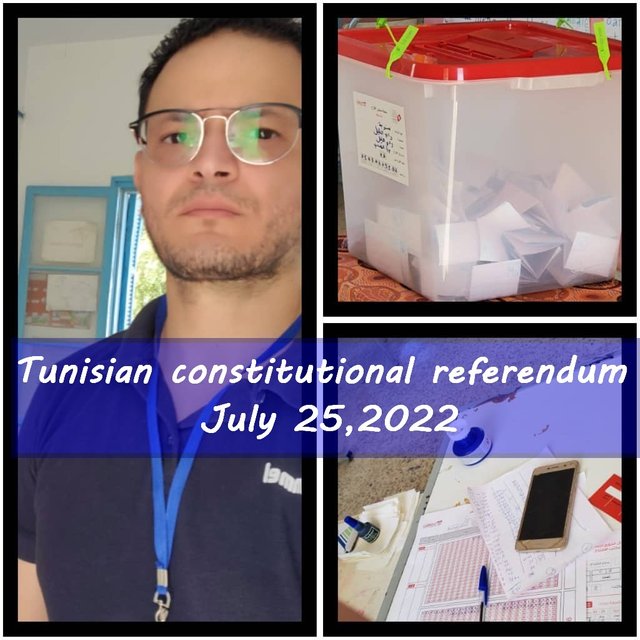Steem4Nigeria Engagement Challenge Season 5, Week 1 - Elections In My Country

First of all, I start by greeting all the members of the #steem4nigeria community who have proposed in this session 5 of the Steemit Engagement Challenge an interesting and sensitive subject at the same time concerning the diversity of political systems in the world, I said sensitive because we never find total satisfaction on an X system, but we always respect people's opinions regardless of the model adopted by them.
Tell us the governance type in your country and how effective you think it has been in running the country's affairs.
The system of government in the Arab Tunisian state, prior to the Tunisian revolution, was a presidential republican system, but after the Tunisian people tasted the scourge of bad governance, the police state, and government intransigence, a new system was approved in the Tunisian state after the Tunisian revolution.
The Tunisian system, which was a presidential republican system, became, after the revolution, a semi-presidential republican system. The semi-presidential or mixed system is a mixture of the presidential and parliamentary systems.
The idea that it is a mixed system means that it is the parliament that shares the head of government in power, and the way to involve parliament in managing the state in the Tunisian Republic is through the president of the republic nominating the head of government and not appointing him, but rather his role is limited only The nomination is required until Parliament approves and approves the appointment of the Prime Minister or the Prime Minister.
But I see that the semi-presidential or mixed system is a strange system and is not legally acceptable, because the people lose a very important type of control over the work of the government, which is parliamentary oversight. Because in that system, the parliament approves and recommends the head of government, and in most cases it represents the largest bloc in parliament, which makes the matter of government oversight and accountability very difficult.

On July 25, Tunisia witnessed another change in the political system following a referendum that won the support of 92 percent of the voters, to move from a semi-parliamentary system to a semi-presidential system.
In the new system, the head of state became higher than the constitutional and party structures, as he was entrusted with the task of choosing and appointing the head of government, not to the winning party in the elections, as is the case in the 2014 constitution, considering that the position does not require the presence of a partisan figure.
The President of the Republic can also choose a second person in the event of the failure of the first person, adding that the president must abandon his position in the event of his failure to choose the appropriate person for the second time, as the government has become in the new constitution, a governmental body to present initiatives and therefore has initiative and control authority only charged with the economic system Its mission is not operational.
In my view, as a result of the faltering political life and the deteriorating economic and social conditions, it is what prompted the President of the Republic to take exceptional measures to try to save the country. We believe that the path to reform and weeding out the corrupt is strewn with thorns and obstacles, but it takes work to overcome them.
What are the election methods employed in your country and do you consider them effective? Do you also participate in the Exercise?
Tunisia has entered a new political chapter since the measures taken by President Kais Saied in July of 2021 to freeze parliament and dismiss the government. These amendments came after the adoption of the new constitution, which he put to a public referendum in the past months, amid a political and economic crisis that the country is going through.
According to my opinion, the new law "changes the rules of the game" on the grounds that there are "fundamental changes", as the new law reduced the number of parliamentarians to 161 after the previous parliament consisted of 217 members. The division of electoral districts was also changed based on the administrative division of the state and not according to the number of voters.
Under the new amendments, the voter is allowed to vote for individuals and not for lists, as was the case in previous elections. The candidate must also apply for elections individually and not through an electoral list.

I, as a Tunisian youth, participated as a voter in almost all the democratic electoral stations that were organized after the 2011 revolution, the latest of which was the referendum on changing the political system as a voter and a member of the electoral committee organizing the event. Al-Tunisi played a major role as a driver of the locomotive of the revolution, whose main slogan was "freedom, dignity and employment." However, as a result of several factors, he returned to the square of political objection and reluctance to participate in public affairs. Partisan conflicts and the deterioration of economic and social indicators played a negative role in further widening the gap between Tunisian youth, their future aspirations, and the directions and choices adopted by politicians during the first decade of the democratic transition.
Share your recent experience in participating in one. Rate the process- fair, good, or bad.
To know the answer to this question, you can refer to this post regarding my participation in the national referendum on changing the political system on July 25, 2022 to reduce the power of Parliament and grant more powers to the President of the Republic.

Would you suggest a method of electing leaders to power? Discuss your method.
The different electoral experiences at the international level, and the diversity and complexity of the adopted systems at times, to ensure an effective presence of young people in public life, and in particular to participate in elections as voters and as candidates, does not represent a stable equation in terms of its starting point and its results.
Some systems have adopted a quota system by election and others by choice, and others have relied on a stimulus system by providing financial benefits through public funding allocations, and other systems have sought to find mechanisms in which all candidates participate without preference under the pretext of consecrating equal chances for all candidates for elections.
It is certain that all these different legislative options alone cannot constitute successful experiences that would achieve the best representation of youth as long as they are not accompanied by a systematic and participatory action of full dimensions in which the state, with its official institution, and the parties, organizations and associations are active partners in it.
One of the solutions that can be approved as well is to change the electoral system to allow greater representation of youth by adopting a voting system that gives a real possibility for young people to be present in the elected councils and not only at the level of the candidate lists, by merging two or more methods of voting (for example, on lists and on people in At the same time, with the stipulation that the minimum number of young candidates who are selected should be within appropriate limits to achieve wide representation in the seats obtained in the elections. This is done through the adoption of appropriate legislation for the purpose, which is likely to have a sufficient level of participation with associations specialized in the electoral field in general and youth in particular.
Taking into account the privacy of communicating with young people, it is also possible to rely more on modern social media.
Would you prefer other forms of governance different from the one you have already and why?
There is a basic idea that democracy contributes to achieving stability and human dignity as long as it allows people to participate in political life. That is, the individual rule did not achieve the system for which the state was found, so the alternative was collective rule.
Democracy was incorporated as a political system in Greece in order to achieve human dignity. Then it disappeared in the shadow of the Middle Ages, but the revolutions that reject repression were imposed in modern and contemporary societies. Democracy is a Greek term composed of two words: demos (people) and kratos (rule).
The people are the king and the one who decides, directs their public life with their free will, enacts laws, chooses those who govern them and fulfills crucial issues, and all of this grows through election, and therefore every law or project not approved by the people is considered void.
The law expresses the general will and is sacred and cannot be violated, and the ruler cannot be above the law. Because he is just a delegate and not a decision. John Jacques Rousseau says (each one of us, whether ruler or ruled, achieves his freedom by submitting to the law, since these laws are nothing but a record of our will and a complete expression of it).
Before finishing my post, I would like to invite my friends @inspiration @franyeligonzalez @irawandedy to participate in this contest.
Best Regards,
@kouba01

Pretty interesting to see how is government being managed in a country like Tunisia. Of course system might be different from other lands but I sincerely think that no one is perfect as expected. Great post. Regards.
Excatly, Governments have the responsibility to put in place coordinated and systematic procedures, with the participation of the peoples concerned, to protect the rights of these peoples and to ensure respect for their safety.
I like the system of government in your country tunisia. The change in electoral system can really be the major solution which you have discussed.
As we hope, but we can't judge until after a period of practice.
We support quality posts anywhere and any tags.
Curated by : @harferri
The evolution of the Tunisian system of government over the years is a really interesting one. It gets better with each change and the rules are clearly defined. The semi-presidential system in particular is fascinating.
It is true that it changes very quickly according to the results of previous systems so that we can find the ideal model.
The mixed system of governance is quite a bottleneck to the people of Tunisia. We all know that democracy provides a high level of freedom where we get to see people doing their own thing.
I have seen your voters card to which shows that you are a patriotic citizen of your country. Goodluck sir.
Gracias por presentarnos parte del funcionamiento político y electoral de Tunez. Es bueno ver que has sido partícipe de los procesos electorales realizados en tu país.
Un nuevo gobierno representado por mucha gente joven sin duda aportaría muchas innovaciones a esta nación.
Éxitos en el concurso.
The Tunisian case you describe is a set of trial and error trials to find a better destiny. I believe that they must keep trying, even if it is blindly, at some point they may find the truth; but for that, they must choose a method to better choose their rulers, who have many qualities except those of a leader, since those who enjoy that quality are the politicians.
Hello @kouba01,
Reading your publication, i'd say that this mix system of governance that involves a semi-presidential and parliamentary system, isn't all that bad. Overall, democracy has a way of emerging favourite in the eyes of many (including me).
Hey my able prof,
Your country has made some remarkable move recently making them one of the biggest in Africa, with you opinion I believe the country would have a better future.
Thank you very much for sharing, please you can check my own entry here
wishing you success